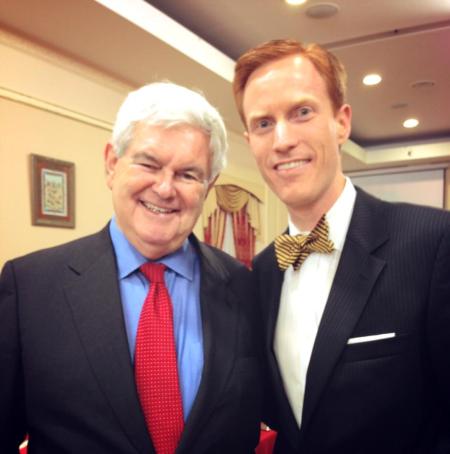#Media / #News / #Scholarship / #Inquiries / #UB
In July 2016, Dr. Ivan Sascha Sheehan – Associate Professor of Public and International Affairs – traveled to Paris as part of a distinguished research delegation examining the Iranian opposition on the first anniversary of the conclusion of negotiations that resulted in the Joint Comprehensive Plan of Action with Iran.
A guest of the organizing committee, Dr. Sheehan met with a series of bipartisan U.S. officials in Paris to discuss U.S.-Iran policy and his research on regime change. He also chaired a panel featuring former U.S. Attorney General Judge Michael Mukasey. While in Europe, Sheehan met with a recently released American hostage detained at Iran’s notorious Evin Prison and examined the deteriorating human rights situation in Iran through a series of interviews with Iranian dissidents.
The annual conference – which featured crowds estimated at more than 100,000 – is the largest annual gathering of the democratic Iranian opposition in exile. The July event featured remarks by leaders from more than fifty countries, a bipartisan delegation of senior U.S. officials, and prominent academics from around the world. The Joint Comprehensive Plan of Action with Iran, democracy, human rights, the rule of law, and the deteriorating situation in neighboring Syria and Iraq were discussed.
Dignitaries in attendance included former Speaker of the U.S. House of Representatives Newt Gingrich; former Secretary of Homeland Security Tom Ridge; former U.S. Attorney General Judge Michael Mukasey; and former National Security Advisor to President George W. Bush, Frances Townsend, among many others.
Prince Turki bin Faisal Al Saud, a former Director of the Saudi General Intelligence Directorate, Saudi Arabia’s Intelligence Agency, pledged his commitment to regime change from within via the Iranian resistance. Clare M. Lopez, Vice President for Research and Analysis at the Center for Security Policy, reflected on the significance of the new alliance between the former Saudi Ambassador to the U.S., a member of the House of Saud, and the principal Iranian opposition:
Although not openly stated by bin Faisal, the new NCRI-Riyadh alliance may be expected to involve funding, intelligence sharing, and possible collaboration in operations aimed at the shared goal of overthrowing the current Tehran regime.
Dr. Sheehan has written and spoken extensively on the concept of regime change from within in the context of Iran in both scholarly and news outlets and for the U.S. policy community. Sheehan is the Director of the graduate programs in Negotiations & Conflict Management and Global Affairs & Human Security in the College of Public Affairs at the University of Baltimore.
For additional research or media related updates or to learn more about Dr. Sheehan, follow him on Twitter @ProfSheehan or link to his research profiles.
Social Media: @ProfSheehan / @PublicAffairsUB

















You must be logged in to post a comment.